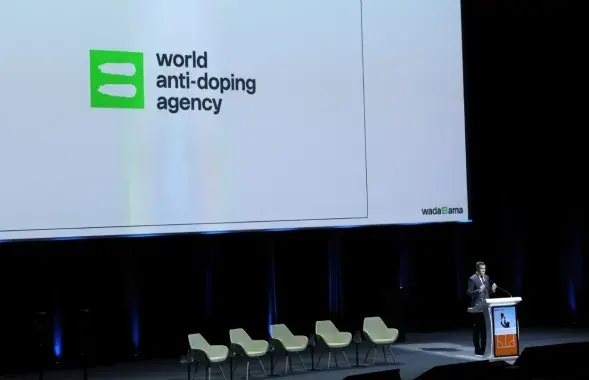Did IAAF believe in Nadzeya Astapchuk's dusted coffee version?
Euroradio gets comment from the shot-putter, Belarusian Track-and-Field Federation, and the IAAF about Nadzeya Astapchuk's doping case.
The shocking news on Nadzeya Astapchuk's disqualification knocked down the whole sports world on August 13 last year. The term of disqualification should have started in the second decade of August.
A year and three months have passed since then.
The National Anti-Doping Agency conducted its own investigation and provided the verdict: the doping was dusted to the athlete's coffee by her coach, for no reason but personal lack of confidence.
This version was criticized a lot, like, how could a top-ranked specialist dust a steroid which would give no practical sense if used just once?
Nevertheless, various things happen in life. This version granted Nadzeya Astapchuk one year of disqualification instead of two.
Thus, the Belarusian Track-and-Field Federation gave a 1-year term of disqualification. The IAAF should have confirmed it, but nothing was heard from there since the beginning of 2013.
Head of the National Anti-Doping Agency Alyaksandr Vankhadla has said he has no information whether Nadzeya Astapchuk's 1-year term of disqualification was confirmed. On the other side, there has been no information on official refusal to do so. Such a cat-and-mouse game.
"I am waiting for this decision. You know, it came to the point when I feel no desire to get back to sports anymore," Nadzeya Astapchuk shares with Euroradio. "They killed all the desire. Why holding back on the decision? It should be taken anyway!"
"There is no clear response yet, the negotiations are in progress," General Secretary of the Belarusian Track-and-Field Federation Elina Zverava says.
Euroradio: Who exactly is holding back the negotiations? The athlete doesn't know what to do and how to live.
Elina Zverava: "It's not us, it's the IAAF. We cannot influence them. We are waiting for the reply."
The IAAF press-office also gave no useful information to Euroradio.
This March, there appeared another complication and the negotiations mixed up even more. Nadzeya Astapchuk was suspected in breaking the anti-doping rules at the tournament that happened 8 years ago.
"There is a doping test taken in 2005, when the use of biologically active additives, which contained prohibited preparation, was allowed," explains Alyaksandr Trashchyla, chief coach of Belarus track-and-field team.
Today, many accuse Nadzeya Astapchuk and other Belarusian shot-putters and throwers of unfair competition. Like, there rivals were in unequal conditions. Is it fair?
Several weeks ago the anti-doping laboratories of Koln and Moscow checked the doping-test taken in the previous years, using the newest way of detecting steroids. They did not name the persons and the tournaments, but the results were shocking - hundreds of positive tests!
The world is about to enter the grand doping scandal. It turned out that many and many top Olympic athletes were on the prohibited pharmacy, while Belarusians and Russians are the only suspects when it comes to the world cup-2005. Should such position of the international sports structures be considered fair?
It looks that holding back the decision on Nadzeya Astapchuk's disqualification happens either because of confusion (the committee on disqualification terms decrease of the IAAF cannot solve the sharp 'doping in the coffee' version) or because of revenge (Astapchuk sharply criticized both Belarusian and international sports officials). In any case, such inhuman and un-European attitude to the athlete would bring no benefit to the world sports.
Hammer thrower Vadzim Dzevyatouski is not surprised with such long consideration of Nadzeya Astapchuk's case. He couldn't sleep normally for two years when he struggled with the International Olympic Committee back in 2010. There were 12 boxes with case materials altogether. The Belarusian athlete won, but this is one case out of a hundred. Meanwhile, Belarusian sports officials have neither proper juridical talent nor language knowledge to protect their athletes' interests.




















